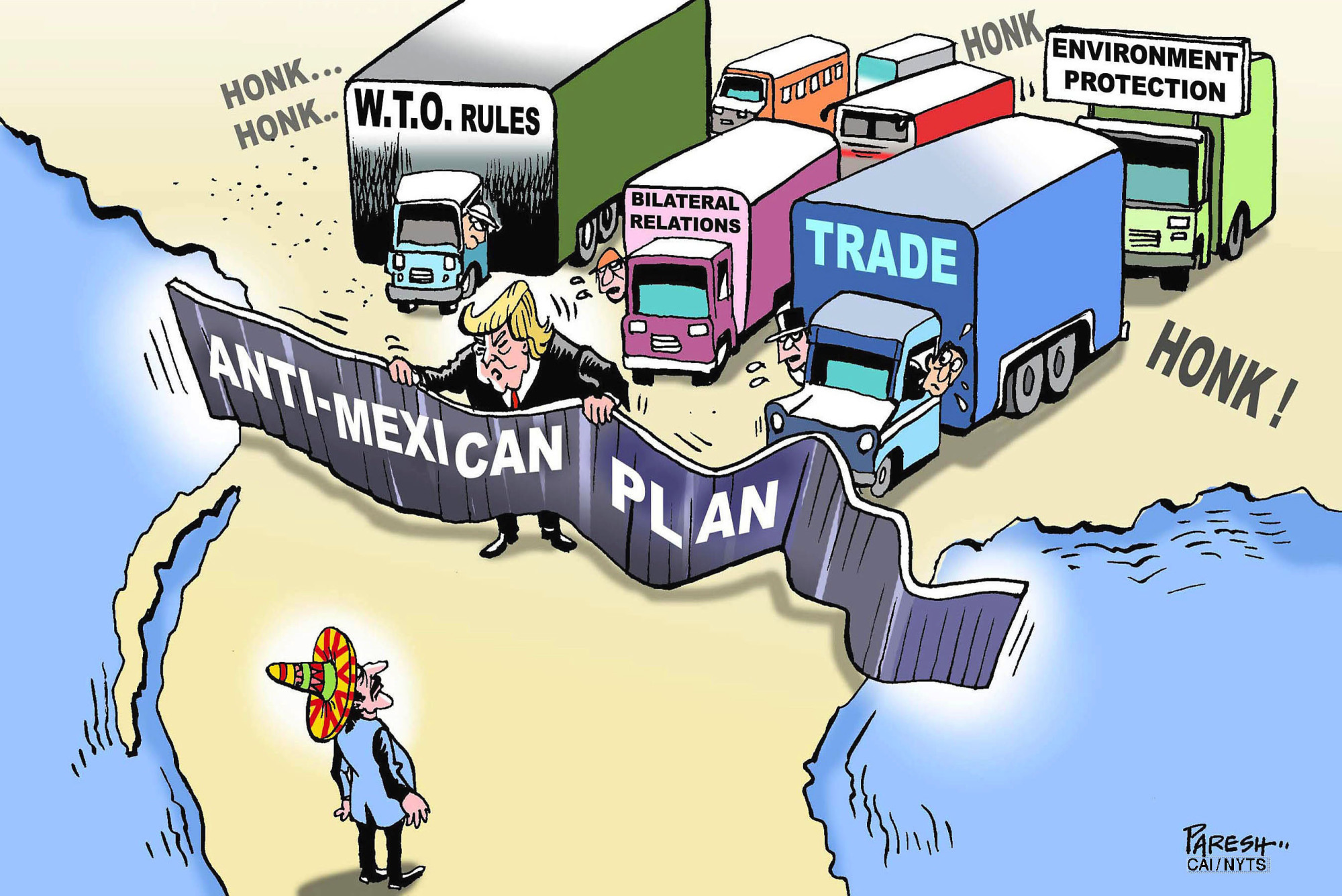
The foreign minister, Luis Videgaray Caso, on his Twitter account yesterday, rejected the “unacceptable” threat of the U.S. president, Donald Trump, to make the renegotiation of NAFTA conditional on the adoption by Mexico of an immigration policy aimed at curbing the flow of people across our territory trying to reach our northern neighbor. “Mexico will decide on its immigration policy in a sovereign manner, and cooperation with the United States on immigration issues will occur because it is beneficial for Mexico,” Videgaray wrote. He added that “it would be unacceptable to make renegotiation of the treaty conditional on actions on immigration, which are outside this context of cooperation.”
It is essential, in the first place, to confirm the type of blackmail to which the White House has subjected the national authorities in the context of the renewal of the trade agreement. The U.S. president often uses this process as an instrument of pressure to gain additional advantages in a variety of areas. But it is also necessary to put what is happening today in a historical perspective, to have an idea of how much ground Mexico has lost in the almost three decades since the negotiations were started on the first version of the trade agreement, which is still in effect.
One of the criticisms leveled at the negotiation at the time, one that is still valid, is that in the formation of the North American economic bloc, the free movement of persons was excluded. The setup for the European Union resulted in an area of open borders among the member states. In contrast, NAFTA opened the customs barriers of Canada, the United States and Mexico to goods and capital, but maintained a tight lock at the Mexico-U.S. border on the movement of people. Such exclusion has resulted in harsh social distortions, a law that clearly discriminates against Mexicans and incalculable suffering for fellow citizens who, in the face of successive economic disasters, have sought employment prospects in the country next door. Crossing without a visa is not possible, and Mexicans require special permits to work in the United States. This not only puts them in a situation where they are defenseless, it has resulted in countless deaths on both sides of the border.
Carlos Salinas, who as president had the idea for and carried out the NAFTA negotiations, has explained several times that he rejected the offer by George Bush, then U.S president, to include the free movement of persons in the trade agreement if Mexico would accept foreign investment in the petroleum industry. But in 30 years, successive administrations in Washington never stopped pressuring our country to open the petroleum sector to foreign capital, which eventually occurred in 2014, with the implementation of reform in the energy sector by the current administration.
In short, over the course of four administrations, Mexico has suffered a loss of sovereignty over its energy resources, without getting anything in return. Paradoxically, it is now the United States that is insisting on linking the trilateral trade agreement to immigration issues. This, however, is not to permit free access to U.S. territory, but rather to force Mexican immigration authorities to slow down the flow of foreigners arriving in the country en route to our northern neighbor.
To sum up, there has been a long-term development strategy that consists of integrating the Mexican economy into the U.S. economy, in a subordinate position. This strategy has been followed without interruption from Salinas himself to Enrique Peña Nieto, through Ernesto Zedillo, Vicente Fox and Felipe Calderón. It has resulted in a permanent decline in Mexico’s position and an increasing vulnerability in the bilateral relationship. Because of that, in the face of Mexico’s weakness, the most important thing right now appears to be to abandon the renegotiation of NAFTA and wait for a time that is more propitious – and less adverse – to restart it.

Leave a Reply
You must be logged in to post a comment.